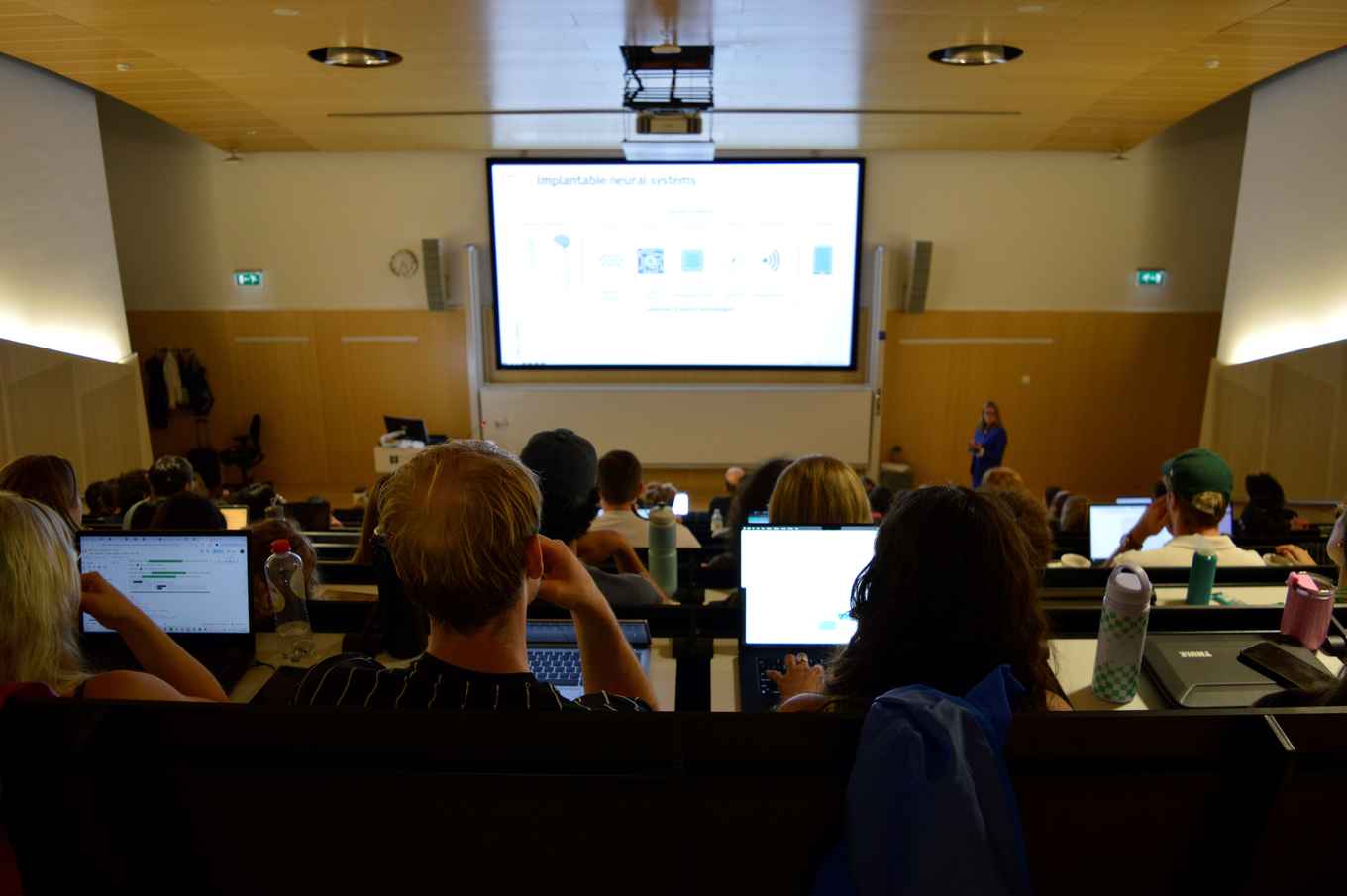Neurotechnology: looking back at the ABC summer school and symposium
14 July 2025
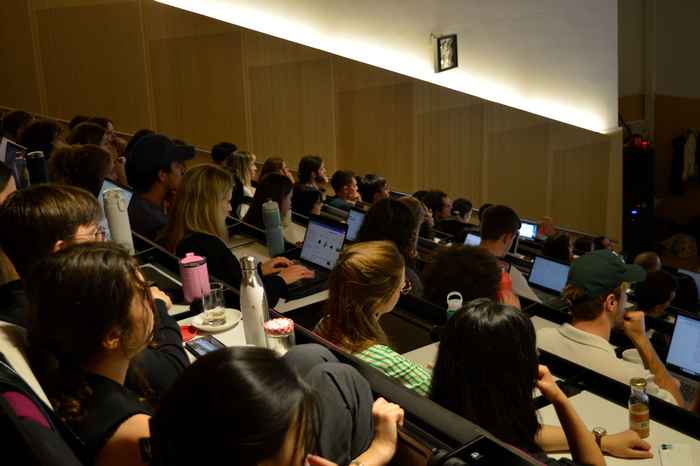
Why neurotechnology?
“Neurotechnology offers scientists (and soon clinicians) better ways to record and influence brain activity, perhaps the biggest challenge of the field of cognitive sciences.” says Dr. Umberto Olcese, one of the organisers and programme director of the master Brain and Cognitive Sciences. “Its developments both helps to study how the brain works, but also to develop new way to diagnose and treat brain disorders. ”
An intensive programme
Throughout the summerschool, students attended lectures from international experts, engaged in hands-on workshops, and worked on their own projects. “We wanted to give young researchers the chance to explore the full scope of what neurotechnology can offer,” says Olcese. “All students were really engaged.”
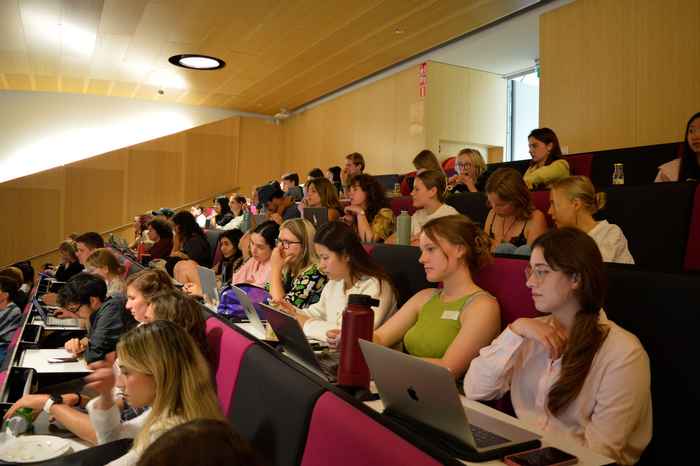
The hands-on workshops were made possible because of a collaboration with TU Delft. “Students had to build a recording setup and record neural activity from cockroaches and worms." Olcese explains. "They learned about both the technologies themselves and their applications.”
The ABC Symposium
The ABC Symposium concluded the summer school but also welcomed other students to learn about Neurotechnology for one day only. It offered talks from leading researchers in the field and included a posterpresentation from the summerschool participants. Held at the Roeterseiland Campus, the event brought together experts from different disciplines to share their insights on where neurotechnology is headed.
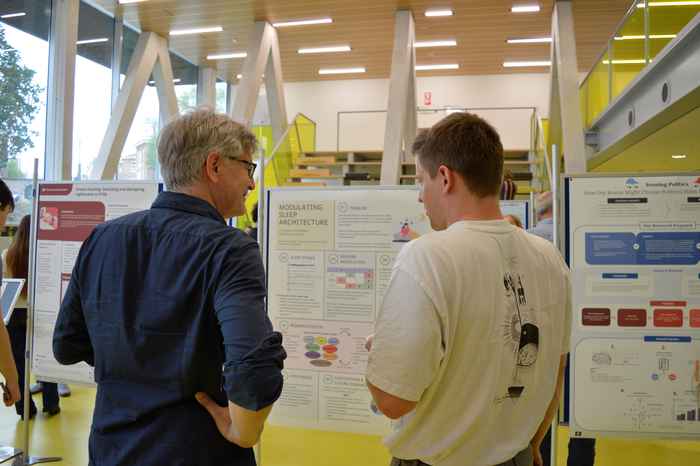
“Hightlight of the ABC Symposium is the lecture given by the researcher who was elected the Frijda chair.” Explains Olcese. The Frijda Chair is named after Nico Frijda (1927-2015), who was emeritus professor of Psychology at the University of Amsterdam and a pioneer of cognitive science in the Netherlands. Each year, the Amsterdam Brain and Cognition center awards this chair to a prominent researcher in the field of brain and cognitive sciences, on the basis of outstanding interdisciplinary achievements.
This year, the Frijda chair was awarded to Stéphanie Lacour, founding director of EPFL Neuro X institute: a new interschool department focused on interdisciplinary and translational neuro-research located at Campus Biotech in Geneva. Her talk highlighted how novel neurotechnologies can really solve scientific questions and pave the way for clinical applications.
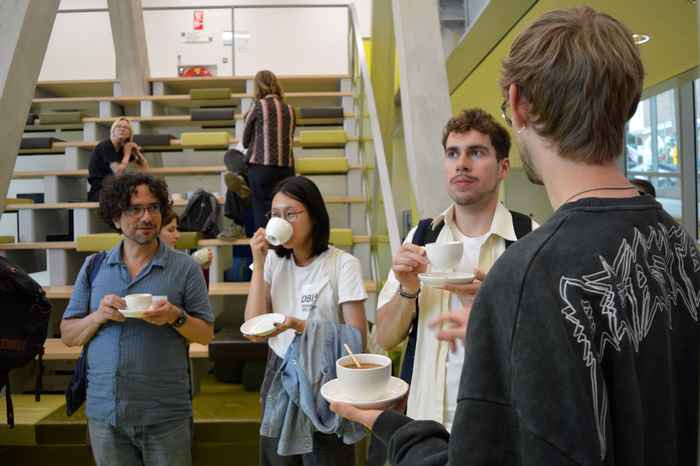
Why do we need the summerschool?
Reflecting on both the summer school and the symposium, Olcese explains the importance of the ABC summerschool and symposium. “ It is an opportunity for to get trained in a cutting-edge topic and learn about the latest scientific developments, something that is more difficult to do in regular courses.” The programme makes participants fully dive into a specific topic for a full week, and brings master students, PhD students and researchers together to think about the most difficult urgent questions raised in the field of brain and cognitive sciences.
The ABC summerschool is the yearly summerschool of the IIS master Brain and Cognitive Sciences, organised in collaboration with the Amsterdam Brain and Cognition Centre.
